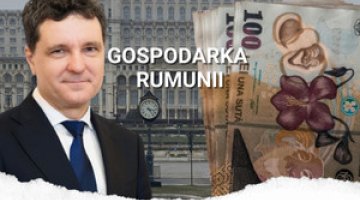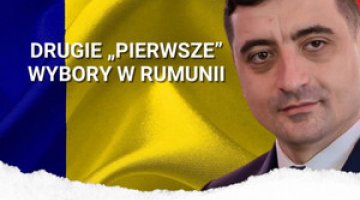Romania: coalition crisis resulting from the first round of the presidential election
In the first round of Romania’s repeated presidential election held on 4 May, George Simion, leader of the opposition national-conservative and sovereigntist Alliance for the Union of Romanians (AUR), won the most votes, securing 40.96%. In the run-off, he will face Nicușor Dan, an independent centre-right mayor of Bucharest supported by the opposition Save Romania Union (USR), who received 20.99% of the vote. Dan narrowly edged out Crin Antonescu (20.07%), the candidate of the governing coalition composed of the Social Democratic Party (PSD), the National Liberal Party (PNL), and the Democratic Alliance of Hungarians in Romania (UDMR). Former Prime Minister Victor Ponta, once the leader of the Social Democrats and now campaigning on rhetoric echoing the MAGA movement, came fourth with 13.04%. USR leader Elena Lasconi placed fifth with 2.68%. The remaining six candidates collectively received only 2.25% of the vote.
On 5 May, following the announcement of the election results, a government crisis erupted in Romania. The government’s largest party – the Social Democratic Party (PSD), which holds 26% of seats in the Chamber of Deputies and 27% in the Senate – announced its withdrawal from the ruling coalition. PSD leader and Prime Minister Marcel Ciolacu also stepped down as the head of the cabinet. The immediate cause of both decisions was the electoral defeat of Crin Antonescu. At the same time, the PSD leadership stated that the government (under an acting prime minister to be appointed in the coming days) would continue to function as a caretaker cabinet and that PSD-affiliated ministers would remain in office for now.
If George Simion – the current frontrunner – wins the second round, the crisis within the governing coalition is likely to worsen. In such a scenario, it cannot be ruled out that the PSD, seeking to establish working relations with the new president and avoid a snap election, may attempt to form a coalition with AUR.
Commentary
- As expected, George Simion decisively won the first round of the presidential election. The AUR leader, who secured only 14% of the vote in the annulled first round held in November 2024, benefited from the backing of far-right, pro-Russian politician Călin Georgescu, the initial winner of that election, who was barred from running again. Recent polls had projected Simion to receive approximately 30–33% of the domestic vote; however, it was also clear he would gain substantial support from the Romanian diaspora, which accounts for as much as 10% of the electorate. Indeed, 60% of Romanians living abroad voted for the AUR leader. The diaspora also played a key role in boosting Nicușor Dan, who received 25% support from this group, just enough to narrowly overtake the ruling coalition’s candidate, Crin Antonescu. An unexpectedly poor result was recorded by USR leader Elena Lasconi. Despite polling around 8% ahead of the vote, she secured only 2.68%, largely due to her party’s endorsement of Dan. In the annulled November vote, she had won as much as 19%, but at that time, Dan (a much more popular and skilful politician) did not run. Thus, Lasconi attracted a significant protest vote from citizens seeking candidates from outside the political establishment.
- Although George Simion is the favourite going into the second round of the presidential election on 18 May, the contest between him and Nicușor Dan is expected to be close. Simion can count on a portion of Victor Ponta’s supporters, as both appeal to anti-globalist, sovereigntist narratives, and emphasise ideological alignment with the MAGA movement. He may also attract a proportion of PSD voters who backed Crin Antonescu in the first round, as some of them are receptive to nationalist slogans. However, the PSD leadership has already announced it will not officially endorse either candidate. Dan is likely to attract the majority of Antonescu’s votes. He has received the official backing of the PNL and is expected to attract UDMR supporters, who recall Simion’s past anti-Hungarian rhetoric, as well as those who previously voted for Elena Lasconi. Additionally, greater mobilisation of the diaspora, which is typically more resistant to the appeal of nationalist politicians, is expected, with many aiming to block the rise of the AUR leader.
- The election outcome represents yet another blow to the long-dominant duopoly of the PSD and the PNL. On both 4 May and during the annulled presidential election in late 2024, the political establishment failed to advance a candidate to the second round, an unprecedented development in post-1989 Romanian history. This is further evidence of growing public disillusionment and fatigue with the ruling elite, a sentiment that was only intensified by the decision to annul the previous election.
- The future of the governing coalition will depend on the final outcome of the presidential election. It seems that the PSD’s decision to withdraw from the coalition was primarily aimed at securing a favourable position for renegotiating the coalition agreement with its former partners, PNL and UDMR. While these parties, which are keen to remain in power, are effectively dependent on cooperation with the Social Democrats, the PSD still retains some room for manoeuvre and the potential to form a coalition with AUR. Such a scenario cannot be ruled out if George Simion wins the presidency. However, this would require significant leadership changes within the PSD, as AUR has made it clear it will not cooperate with Marcel Ciolacu.





